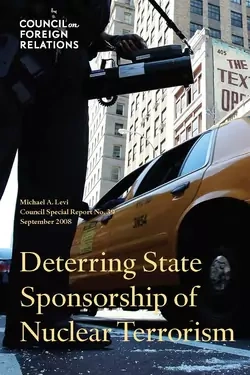
Deterring State Sponsorship of Nuclear Terrorism

- Council Special Report
- Concise policy briefs that provide timely responses to developing crises or contributions to current policy dilemmas.
Overview
The basis of nuclear doctrine during the Cold War was deterrence. Nuclear powers were deterred from attacking each other by the fear of retaliation. Today, much of the concern over possible nuclear attack comes in the context of rogue states and terrorism. And since only states are known to possess nuclear weapons, an important question is how to deter them from letting terrorists acquire a device, whether through an authorized transfer or a security breach.
Michael A. Levi analyzes this aspect of deterrence in the post–Cold War world, as well as what to do if deterrence breaks down. He suggests how to discourage states from giving weapons or nuclear materials to terrorists and how to encourage states to bolster security against any accidental transfer. The report also discusses the role of nuclear attribution—the science of identifying the origin of nuclear materials—in deterring transfers, an essential link in assigning responsibility to governments for transfers of nuclear materials.
More on:
Nonproliferation, Arms Control, and Disarmament
Deterring State Sponsorship of Nuclear Terrorism offers thoughtful analysis and practical guidelines for U.S. policy on a complex and important question and makes an important contribution to the thinking in an underexplored but unavoidable area of the post–Cold War security debate.
More on:
Nonproliferation, Arms Control, and Disarmament
 Online Store
Online Store
